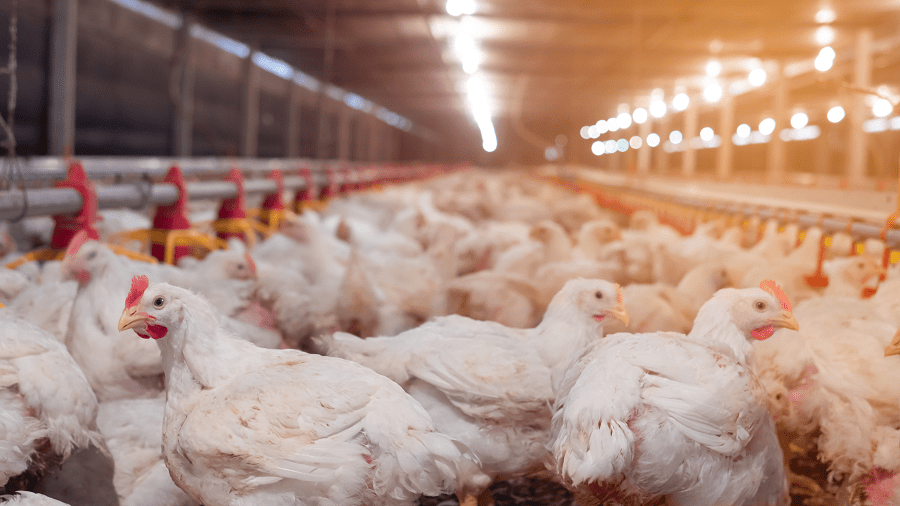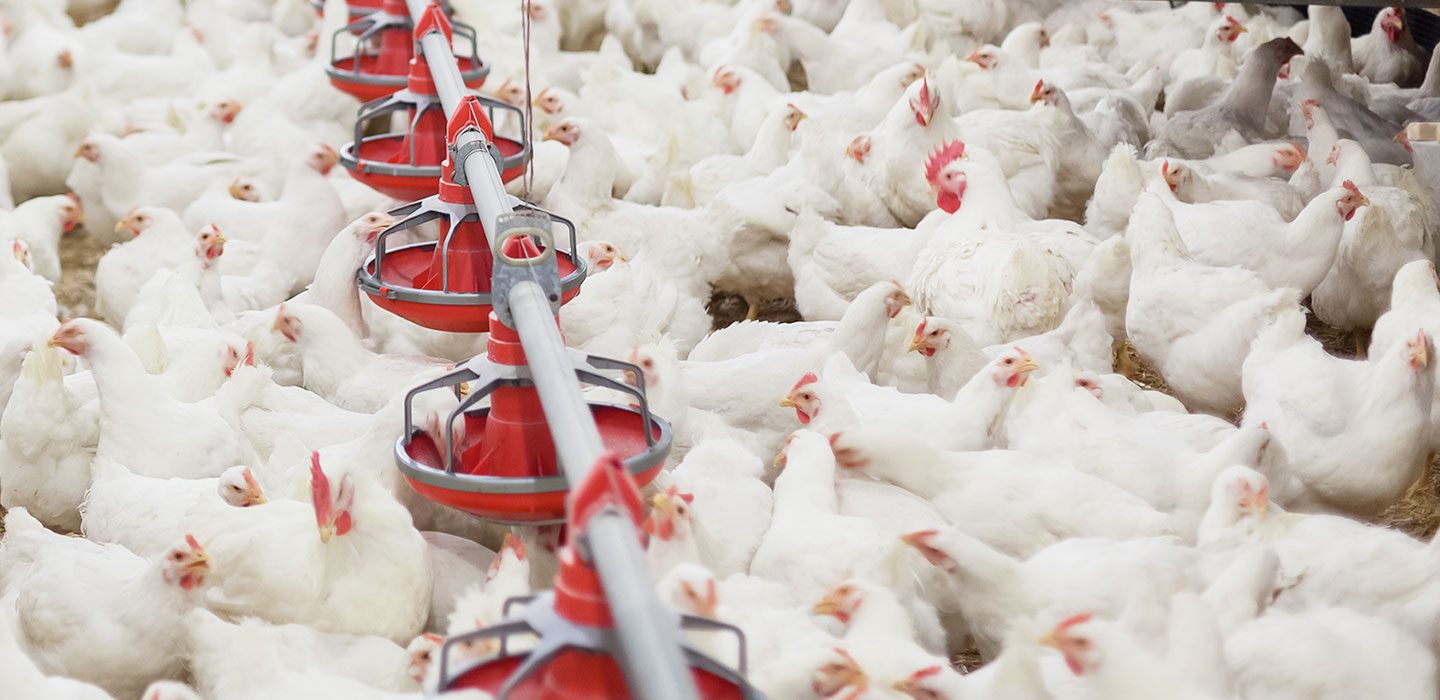Poultry Gut Health: Approaching Optimization

Poultry gut health is the foundation for poultry performance and producer profitability. Understanding how gut health problems start is key to overcoming gut health challenges.
Gut Health Problems
There are four stages in how gut health problems develop in poultry:
- Oversupply of nutrients in the lumen—While an oversupply of nutrients may appear beneficial, the quality of those nutrients and their feed ingredients makes a difference. Undigested nutrients in the gut become food for pathogens like perfringens, E. coli, and Salmonella. This can result in the production of harmful metabolites and bacterial toxins, which can cause various gut health issues.
- Shift in gut microbe populations—The accumulated undigested nutrients act as fuel for problematic bacteria in the gut, resulting in a shift in the microbial populations in the gut, causing dysbacteriosis.
- Changes to gut function—Pathogenic bacteria and microbes interfere with the intestinal mucosa and/or produce toxins in the gut of the bird, damaging the gastrointestinal tract and resulting in inflammation and oxidative stress.
- Less functional gut—A damaged and inflamed gastrointestinal tract will neither digest feed as efficiently nor will it absorb necessary nutrients. A bird with a damaged or inflamed gastrointestinal tract is also at risk of other pathogens attacking its immune system by not having the immune capability to properly respond.
Approaching Gut Optimization
Proper gut health requires a direct approach that targets the gut. This means poultry producers and nutritionists should focus on feeding diets that help modulate gut microbial populations and maintain gut integrity.
Organic acids are shown to support gut health. In trials, a blend of protected organic acids containing benzoic acid (PROVENIA® Feed Solution) is shown to increase Lactobacillus spp. count and lactic acid production in the intestinal tract1,2. Lactic acid is then used by other butyric acid-producing bacteria such as Clostridial clusters IV and XIVa3. This helps improve gut integrity and gut health, which supports growth and performance even in antibiotic-free or antibiotic-reduced production.
1 Berlin University, 2012 presented at ESPN, 2013
2 Yousaf et al., 2017
3 C. De Maesschalck et al., 2015

Intelligent Nutrition for Your Business
More science. More insight. More inspiration. More ways for you to feed the world.





